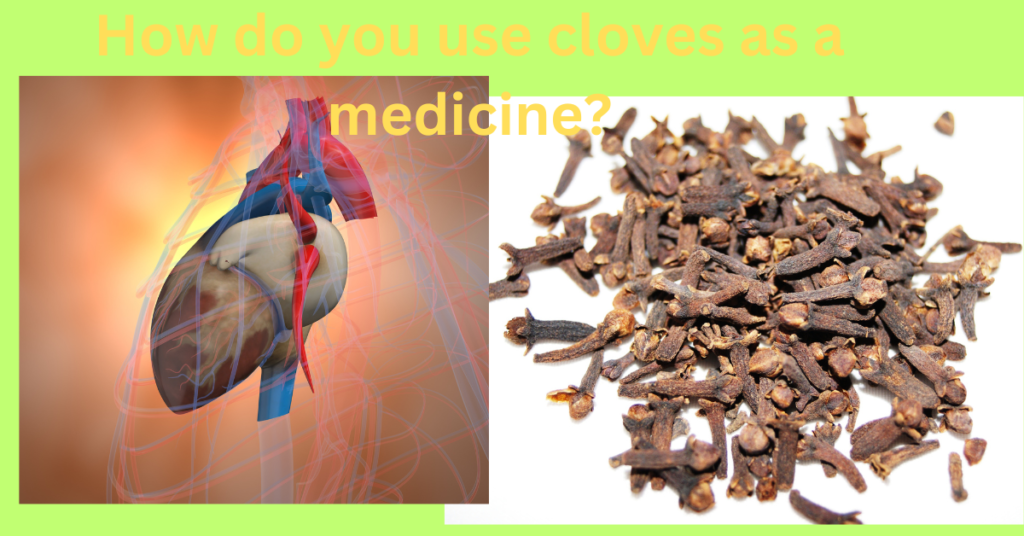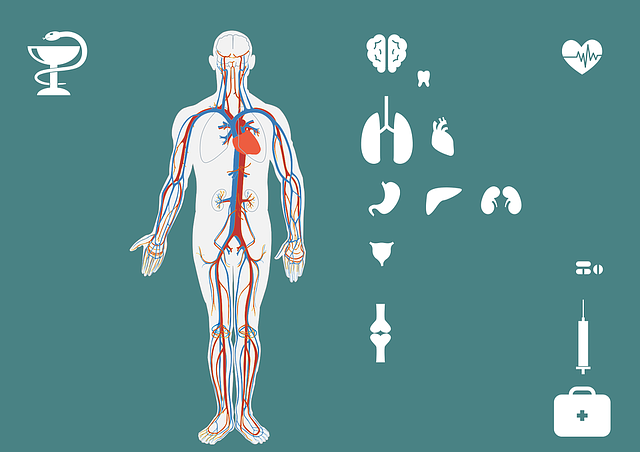How Do You Use Cloves as Medicine
Intro
How Do You Use Cloves as Medicine?Cloves, those tiny aromatic flower buds that are often seen decorating festive holiday hams or spicing up a cup of tea, have more to offer than just their culinary charm. But did you know that these small, sun-dried buds also pack a powerful punch in the realm of natural medicine? In this post, we will explore how you can use cloves as a medicine, what are the benefits of cloves, and the benefits of chewing cloves and its side effects.
An Ancient Remedy Rediscovered
Historically, cloves have been used for more than 2,000 years. Their medical value can be traced back to ancient civilizations like China and India, where they were used to treat a variety of ailments. This ancient remedy has since transcended generations and geographical boundaries, seamlessly integrating into modern medicine and home remedies around the world.
So, how do you use cloves as medicine? And what makes them such a versatile and effective natural remedy?
Medical Benefits of Cloves
Antioxidant Powerhouse
Cloves are incredibly rich in antioxidants, which are essential for protecting our cells from damage caused by free radicals. Free radicals are unstable molecules that can cause harm to your body’s cells, leading to chronic diseases like cancer and heart disease. By neutralizing these free radicals, antioxidants play a crucial role in maintaining our health.
- Prevention of Chronic Diseases: Incorporating cloves into your diet can help in reducing the risk of chronic diseases by neutralizing free radicals.
- Anti-aging: The antioxidant properties also contribute to anti-aging benefits, making your skin look fresher and more youthful.

Anti-Inflammatory Properties
One of the compounds found in cloves, called eugenol, possesses anti-inflammatory properties. This makes cloves effective in reducing inflammation, which is the root cause of many diseases and conditions.
- Arthritis Relief: The anti-inflammatory properties of cloves can help reduce the symptoms of arthritis.
- Muscle Pain: It can also be effective in easing muscle pain when used as a topical application.
Dental Health
Cloves have been used for their dental health benefits for centuries. From ancient times to modern-day dental practices, clove oil has been a go-to remedy for toothache and other dental issues.
- Toothache Relief: The eugenol in cloves acts as a natural anesthetic, which can help numb the pain.
- Oral Hygiene: Cloves have antibacterial properties that can help maintain oral hygiene by killing harmful bacteria in the mouth.
Digestive Health
How do you use cloves as medicine for digestive health? Well, cloves can be incredibly effective in aiding digestion and treating issues like bloating and indigestion.
- Stimulates Digestion: Cloves help in the production of digestive enzymes which improve digestion.
- Reduces Bloating: It can also relieve bloating and gas, making your stomach feel more comfortable.
Immune Boosting
Because cloves are rich in antioxidants, they are highly effective in boosting your immune system. A strong immune system is pivotal in fighting off infections and diseases.
- Fends Off Colds and Flu: Using cloves regularly can help prevent colds and flu by boosting your immune system.
- Combats Infections: The antibacterial properties also play a role in combating bacterial infections.
Practical Applications of Cloves in Everyday Medicine
Now that we’ve discussed the impressive range of benefits, let’s dive into practical ways of how you can incorporate cloves into your daily medicinal routine.
Clove Tea for Digestive Health
One of the easiest ways to use cloves is by making clove tea. This tea can help in alleviating digestive issues and boosting your immune system.
- Ingredients: 1 teaspoon of ground cloves, 1 cup of boiling water, honey (optional).
- Instructions: Add the ground cloves to the boiling water and let it steep for about 10 minutes. Strain the mixture and add honey if desired.
- Usage: Drink this tea once a day to help with digestion and to boost your overall health.
Clove Oil for Toothache
Clove oil is an excellent remedy for toothaches due to its anesthetic and antibacterial properties.
- Ingredients: Clove oil, a cotton ball.
- Instructions: Soak a cotton ball in clove oil.
- Usage: Place the soaked cotton ball on the affected tooth until the pain subsides.
Chewing Cloves for Oral Health
Chewing cloves can be a simple yet effective way to utilize their health benefits. But what benefits of chewing cloves and its side effects should you be aware of?
- Promotes Oral Hygiene: Chewing cloves can help freshen your breath and kill harmful bacteria in your mouth.
- Relieves Toothache: The act of chewing cloves can release eugenol, providing temporary relief from tooth pain.

Callout: “Chewing cloves not only freshens your breath but also promotes oral hygiene by killing harmful bacteria.”
- Side Effects: Chewing too many cloves can cause irritation in the mouth and lead to minor burns or sores. It’s best to limit yourself to one or two cloves a day.
Clove Oil Massage for Muscle Pain
The anti-inflammatory properties of cloves make them great for treating muscle pain and joint issues like arthritis.
- Ingredients: Clove oil, carrier oil (like coconut or olive oil).
- Instructions: Mix a few drops of clove oil with a tablespoon of carrier oil.
- Usage: Massage the mixture onto the affected area to relieve muscle pain and stiffness.
Clove-Infused Honey for Immune Boosting
This remedy can help to boost your immune system, and it is quite tasty as well.
- Ingredients: A jar of honey, a handful of whole cloves.
- Instructions: Place the cloves into the jar of honey and let it sit for a few days to infuse.
- Usage: Consume a spoonful of this clove-infused honey daily to boost your immune system.
Clove Poultice for Skin Infections
Cloves also have antibacterial properties that can help in treating minor skin infections.
- Ingredients: Ground cloves, warm water, a clean cloth.
- Instructions: Make a paste by mixing ground cloves with warm water. Apply this paste to a clean cloth.
- Usage: Place the cloth on the infected area and let it sit for about 20 minutes. Repeat this process a few times a day until the infection clears.
Possible Side Effects and Precautions
While cloves have a myriad of health benefits, it is also essential to be aware of their potential side effects. This will help you in using them safely and effectively.
- Pregnancy and Breastfeeding: Pregnant and breastfeeding women should consult their healthcare provider before using cloves medicinally.
- Blood Disorders: Cloves can slow blood clotting, so people with bleeding disorders should avoid them.
- Allergic Reactions: Some people may have allergic reactions to cloves, which can manifest as skin rashes, itchy skin, or difficulty in breathing.
- Gastrointestinal Issues: Consuming cloves in large amounts can lead to gastrointestinal issues such as nausea, vomiting, and diarrhea.
Callout: “Always consult your healthcare provider before incorporating new remedies into your routine, especially if you are pregnant, breastfeeding, or have any existing medical conditions.”
The Versatility of Cloves in Holistic Health
Cloves are more than just a kitchen spice; they are versatile and potent components of holistic health. From boosting your immune system to treating a toothache, digestive issues, and even skin infections, cloves have a multitude of applications. What are the benefits of cloves? The benefits are both wide-ranging and substantial. However, as with any natural remedy, it is essential to use cloves with caution to avoid potential side effects.
Conclusion
To sum up, cloves are a tiny but mighty remedy that can significantly enhance your well-being when used correctly. Whether you’re sipping on clove tea for digestive health, chewing cloves for oral hygiene, or using clove oil for muscle pain, there are innumerable ways to integrate this ancient remedy into your daily life.
So, the next time you see those small, brown buds in your spice rack, you will know that their potential goes far beyond flavoring your dishes. With proper knowledge and cautious use, cloves can be a valuable addition to your natural medicine cabinet.
Callout: “Embrace the ancient wisdom of using cloves as a natural remedy and enjoy their myriad health benefits.”
Takeaway
Always remember to consult your healthcare provider before starting any new treatment, especially when it involves potent natural remedies such as cloves. With their guidance, you can safely reap all the benefits that cloves have to offer, from boosting your immune system to relieving a toothache, making them a staple in your journey toward better health.
Let this guide be your starting point in exploring how you can use cloves as medicine, and may you enjoy the journey to a healthier, more balanced life.
How Do You Use Cloves as Medicine?
Are you about natural remedies and medicine? If so, you’re in the right place! Today, we’re going to about something you probably already have in your kitchen: cloves. These tiny, aromatic flower buds pack a punch when it comes to health benefits. But how exactly can you use cloves as medicine? Let’s dive into the fascinating world of cloves and uncover their many medicinal properties.
The History and Origin of Cloves
Before we hop into the uses, let’s take a quick trip back in time. Cloves are native to the Maluku Islands in Indonesia, and they’ve been used for thousands of years in both cooking and medicine. Ancient Chinese and Indian civilizations regarded cloves as a treasure, not just for their unique flavor but also for their health benefits. Today, cloves are grown in several parts of the world, including Indonesia, India, Madagascar, and Sri Lanka.
The Nutritional Profile of Cloves
Did you know that cloves are more than just aromatic spice? They are packed with essential nutrients. Here’s a snapshot of what you’ll find in cloves:
- Vitamins: Cloves are rich in vitamin C and vitamin K.
- Minerals: They contain manganese, calcium, and magnesium.
- Antioxidants: Cloves are packed with powerful antioxidants, including eugenol, which is the key compound responsible for many of their health benefits.
Medicinal Properties of Cloves
Cloves have a variety of medicinal properties that can help with several health issues. Here’s a breakdown of some of their most notable benefits:
Anti-Inflammatory and Pain Relief
One of the most famous compounds in cloves is eugenol, which has been shown to reduce inflammation and act as a pain reliever. It’s often used in dental care products, such as toothpaste and mouthwash, to help relieve toothaches.
Antibacterial and Antifungal
Cloves have potent antibacterial and antifungal properties, which make them effective against a range of bacteria and fungi. They can help in treating infections and boosting the immune system.
Antioxidant Powerhouse
Eugenol isn’t just anti-inflammatory; it’s also a powerful antioxidant. Antioxidants help protect your body from harmful free radicals that can lead to chronic diseases like heart disease and cancer.
Digestive Aid
Cloves can help in improving digestion by promoting the production of digestive enzymes. They are also effective in reducing gas, bloating, and indigestion.

Blood Sugar Regulation
Some studies suggest that cloves can help regulate blood sugar levels, making them beneficial for people with diabetes.
How to Use Cloves as Medicine
Now that we’ve got the basics covered, let’s get to the heart of the matter: how do you use cloves as medicine? Here are some practical and straightforward ways to incorporate cloves into your health routine.
Clove Tea
Clove tea is one of the simplest ways to reap the medicinal benefits of cloves. Here’s how to make it:
Ingredients:
- 1-2 teaspoons of whole cloves
- 1 cup of water
- Honey or lemon (optional)
Instructions:
- Boil the water in a pot.
- Add the cloves and let it simmer for about 10 minutes.
- Strain the liquid to remove the cloves.
- Add honey or lemon to taste if desired.
Benefits: Clove tea can help with digestion, reduce inflammation, and relieve pain.
Clove Oil
Clove oil is a more concentrated form of clove that can be used topically or aromatically. However, it’s potent, so you need to use it with caution.
How to make clove oil:
- Crush 1 tablespoon of whole cloves.
- Heat 1/2 cup of olive oil in a pan, then add the crushed cloves.
- Let it simmer for about 10 minutes.
- Let the mixture cool, then strain it to remove the solid particles.
- Store the oil in a dark, airtight container.
Uses:
- Toothache Relief: Apply a few drops to a cotton ball and place it on the affected area.
- Muscle Pain: Mix with a carrier oil (like coconut oil) and massage onto sore muscles.
- Skin Infections: Apply diluted clove oil to the affected area.
Clove and Honey Mixture
This is a quick and easy remedy that can help with coughs and sore throats.
Ingredients:
- 1 teaspoon of ground cloves
- 1 tablespoon of honey
Instructions:
- Mix the ground cloves with honey.
- Take a teaspoon of this mixture whenever you have a cough or sore throat.
Benefits: This mixture helps soothe the throat and has antimicrobial properties that can help fight infections.
How They Help Regulate Sugar
Managing blood levels is a constant battle millions around the globe particularly for those diagnosed with diabetes. While medication and lifestyle changes play a critical role, there is a growing body of evidence to suggest that certain natural remedies, such as cloves, can also assist in maintaining healthy blood sugar levels. But how do these tiny aromatic flower buds work their magic? Let’s delve into the science of how cloves may help regulate blood sugar and improve overall health.
Understanding Blood Sugar Regulation
What is Blood Sugar?
Blood sugar, or glucose, is the principal sugar found in your blood. It comes from the food you eat and is your body’s main source of energy. Your blood carries glucose to your body’s cells to use for energy. Having the right amount of blood sugar is essential for your health; too much or too little can have serious health consequences.
Why Is Blood Sugar Regulation Important?
Maintaining a balanced blood sugar level is crucial for avoiding both acute and chronic health issues. High blood sugar, known as hyperglycemia, can lead to conditions such as diabetes, cardiovascular diseases, and nerve damage. On the other hand, low blood sugar, or hypoglycemia, can cause dizziness, confusion, and in severe cases, loss of consciousness.
Understanding how to maintain this balance can significantly improve one’s quality of life. This is where cloves come into play.
What Are Cloves?
A Brief Overview
Cloves are aromatic flower buds that come from the clove tree, also known as Syzygium aromaticum. Native to the Maluku Islands in Indonesia, these tiny buds have been used for thousands of years in various cultures for their medicinal properties and as a culinary spice.
Nutritional Profile
Cloves contain multiple nutrients including vitamins, minerals, and essential oils. Specifically, they are rich in manganese, vitamin K, and fiber, making them not only valuable for their flavor but also their health benefits.
How Cloves May Help Regulate Blood Sugar
The Scientific Evidence
Research suggests that cloves can play a significant role in blood sugar regulation. A study published in the Journal of Medicinal Food found that clove extract could reduce blood sugar levels in diabetic rats.
Another study in the “Journal of Natural Medicine” revealed that clove oil might have the potential to improve insulin function, thereby helping in better glucose metabolism.
The Role of Eugenol
One of the key compounds found in cloves is eugenol. Eugenol is an essential oil that acts as an anti-inflammatory and has antioxidant properties. These properties are particularly beneficial for those with diabetes, as oxidative stress and inflammation can contribute to insulin resistance and complications related to high blood sugar levels.
Antioxidant Properties
Cloves are known to have high amounts of antioxidants which can help manage oxidative stress—a condition where there is an imbalance between free radicals and antioxidants in your body. Oxidative stress can damage cells, proteins, and DNA, contributing to chronic diseases like diabetes. The antioxidants in cloves can neutralize these free radicals, thereby reducing the risk of diabetes complications.
Ways to Incorporate Cloves into Your Diet
Culinary Uses
One of the easiest ways to add cloves to your diet is through your cooking. Cloves can be used in various foods, from savory dishes to desserts.
- Tea: Adding a few cloves to your tea can infuse it with a delightful aroma and a host of health benefits.
- Spices: Use ground cloves in baking or cooking for added flavor.
- Flavoring Agents: Cloves can also be used in broths, sauces, and marinades for meat and vegetables.
Supplements and Extracts
If incorporating cloves into your meals seems challenging, cloves are also available in supplemental forms such as extracts, capsules, and essential oils. However, it’s crucial to talk with your healthcare provider before starting any new supplement regimen.
Other Health Benefits of Cloves
While the focus of this article is on blood sugar regulation, it’s worth noting that cloves offer a myriad of other health benefits.
Liver Health
Cloves are rich in compounds that may promote liver health, which is essential for the overall regulation of blood sugar. A healthy liver helps break down toxins and metabolize hormones, fats, and proteins, which in turn affects your blood sugar levels.

Digestive Health
Cloves have traditionally been used to treat digestive issues. Their carminative properties can help reduce bloating and gas. Improved digestion can also aid in better blood sugar management by promoting efficient nutrient absorption.
Anti-inflammatory Benefits
As mentioned, eugenol in cloves has strong anti-inflammatory properties. Inflammation is a key factor in many chronic diseases, including diabetes. Controlling inflammation can therefore help manage blood sugar levels more effectively.
Tips for Safe Usage
Dosage
While cloves offer numerous benefits, moderation is key. Excessive consumption can lead to side effects such as headaches, liver issues, and mucous membrane irritation. Experts generally recommend that the daily intake of cloves should not exceed 2.5 grams to avoid any adverse effects.
Allergic Reactions
Some individuals may be allergic to cloves. Symptoms of an allergic reaction can include itching, swelling, and difficulty breathing. Always consult with a healthcare provider if you’re unsure about adding something new to your diet.
Conclusion
In summary, cloves offer a promising natural approach to blood sugar management. From their antioxidant properties to their role in improving insulin function, these tiny buds pack a powerful punch. By incorporating cloves into your daily routine—either through diet or supplements—you can take an essential step towards better blood sugar regulation and overall health.
Managing blood sugar is not just about diet or medication; it’s about making informed decisions that can collectively improve your quality of life. And now, with the evidence supporting the benefits of cloves, you have one more tool in your health arsenal.
“Small daily improvements over time lead to stunning results.”
Let’s consider cloves as one such small yet powerful daily improvement.
Take a conscious step today towards better health by exploring how this ancient spice can contribute to your wellness journey. Whether you’re newly diagnosed with diabetes or have been managing it for years, understanding and utilizing natural remedies like cloves can make a significant difference.
